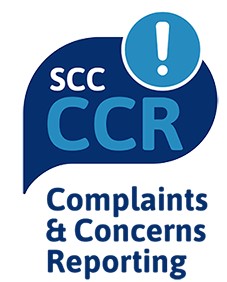How Do I Help?
Once you have recognized a distressed student, your decision about your options or path to support the student may be influenced by:
- Your level of experience
- The nature or severity of the problem
- Your ability to give time to the situation
- A variety of other personal factors
You will not be taking on the role of a counselor.
You need only listen, care and offer resource/referral information.
When interacting with the student, consider the following examples:
“I’m concerned about you and noticed you haven’t been sleeping, eating, going to class, etc.”
“How are you feeling?” “How are things going for you?”
“I’ve noticed lately that you . . .”
Be aware of your nonverbal communication, including tone of voice, facial expression, body posture, eye contact, etc.
“You mentioned . . . Tell me more about that.”
“I’m glad you called.”
“What I hear you say is that you are in a great deal of pain and feel hopeless.”
“I want to make sure I understand what you are saying. Your concerns are . . . ?”
“What problems has that situation caused you?”
“What concerns do you have based upon what you just told me?”
“What do you think you need to do to get back on a healthy path?”
“Sometimes when people feel sad, they have thoughts of killing themselves. Have you had such thoughts?”
“Are you thinking of killing yourself?”
“Have you considered suicide?” “How would you go about it?” “When would you do that?”
Remember, asking about suicide does NOT put the idea in people’s minds.
“I’m concerned about you and your well-being, and I want you to get the help you need.”
“Because I care and this is outside my area of expertise, I suggest you work with an expert who is trained to help in these situations.”
“What would help now?”
“Who can, who usually helps?”
“We have a Counseling Assistance Program for Students. Let’s call right now.”
“We have Success Coaches who can help with your situation. Let’s walk over to their office.”
Counseling Assistance Program for Students: 402-228-8135 ext. 1135, Monday through Friday, 8 a.m. to 5 p.m.
National Suicide Prevention Lifeline 800-273-TALK
Call 911 if this is an acute crisis.
- Do not promise to keep the person’s thoughts of suicide a secret. You can say: “I care about your well-being and safety, so I can’t agree to keep this to myself. I need to talk to someone who can help us think this through.” Legally, conversations between faculty and students are not considered confidential.
- Do not leave the person alone.
- Do not offer simple solutions.
- Do not suggest drugs or alcohol as a solution.
Report Online
If a person is an immediate threat themselves or someone else or is incapable of caring for themselves, CALL 911.
